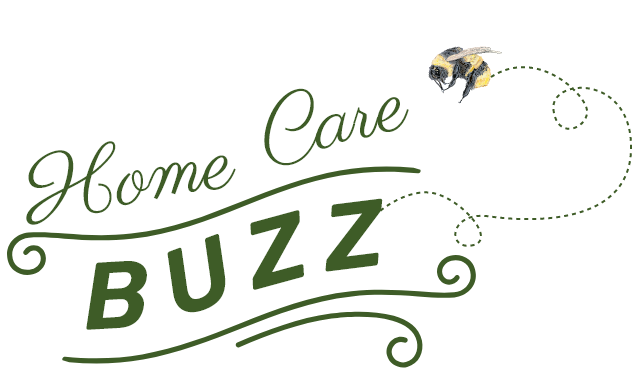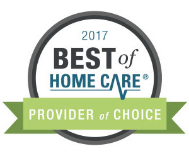Elderspeak – Is it helpful or just baby talk?

Like an automatic shift into low gear, we often revert to baby talk when communicating with seniors regardless of the person's ability to understand and respond. This is called "Elderspeak." It is common, especially between young caregivers and older residents in a nursing home. Researchers in the field of gerontology have documented that it can diminish an older person's confidence in his or her abilities. Yet, the sad thing is, young speakers have it half right. Some aspects of elderspeak do compensate for natural changes in the cognitive skills of our elders. But most of the time, it is actually confusing and even harmful to talk this way. Elderspeak is a form of ageism that is under scrutiny by researchers and service providers alike.
What is elderspeak?
These are the kinds of adjustments a young person may make when addressing an elder:
- Using a singsong voice, changing pitch and tone, exaggerating words.
- Simplifying the length and complexity of sentences.
- Speaking more slowly.
- Using limited vocabulary.
- Repeating or paraphrasing what has just been said.
- Using terms like "honey" or "dear."
- Using statements that sound like questions.
This cultural behavior is also called "baby talk" because it is so similar to the way we talk to very young children. It is meant to be helpful and supportive, but older folks often believe it is patronizing.
How common is it?
Elderspeak is common in nursing homes, hospitals and other settings where frail elders are found. It appears to be a speech pattern based on stereotypes not actual behavior because we also hear it used in situations where older adults are clearly functioning well -- such as banks and grocery stores.
A number of researchers have documented the use of elderspeak. Susan Kemper, a distinguished professor at the University of Kansas specializing in gerontology, directed a Merrill conference on communication, aging and memory. Her research explores why young adults use elderspeak and how older adults react to it. With grant funding from the National Institute on Aging, she has tested the possibility that people may change their speech patterns in response to cues that an older person doesn't understand. In controlled experiments, older listeners were paired with young speakers and asked to follow map directions. The seniors listened to the young people and did not interrupt with requests to speak more slowly, repeat or clarify. Even though the older listeners gave no indication of difficulty, the tests documented that young speakers consistently reverted to elderspeak.
Older adults do not engage in elderspeak with each other, perhaps because they've learned it conveys a mixed message about the listener's abilities. Researchers from other universities, such as Brian O'Conner and Holly Rigby, have documented that many seniors consider elderspeak "superior" and "cold." However, nursing home residents are no longer offended because they have accommodated to its habitual use.
Is it harmful?
Elderspeak implies that an older person is not competent. Miscommunication is occurring and it is his/her fault. This is the mindset that Kemper reveals through her experiments. She has documented the bizarre discrepancy between a flawless performance by seniors and their reports of confusion. Over and over again, older adults successfully find the location on a map as instructed, but at the same time, they report concerns that they misunderstood their younger partners in the test. Research by Ellen Ryan and Howard Giles also supports the idea that elderspeak affects an older person's evaluation of his or her abilities. It may reinforce negative stereotypes about aging and erode older adults' self-esteem.
Most aspects of elderspeak actually decrease comprehension. It is confusing when a word is exaggerated. It is also hard to understand a statement that sounds like a question. Talking too slowly affects a senior's ability to focus on the main point and retain information. These cultural tools do not have a basis in the science of communication.
What is helpful?
Today we know a great deal about normal changes in thinking and communicating as a person ages. Science has established that older adults experience changes in their working memory. This affects the way they hear and understand what is said to them. Because of this, we know that seniors will have better comprehension if you:
- Repeat and paraphrase what you are saying.
- Simplify -- remember to be explicit
For example, instead of saying: "The lunch, which was served late yesterday, made my stomach upset and I had to miss the class that I enjoy so much." Try saying it this way instead: "Lunch was served late yesterday. My stomach was upset so I had to miss my class. I really enjoy that class."
These two kinds of accommodations are very different from the singsong form of elderspeak we hear most often in nursing homes.
One size does not fit all
There are many positive ways to talk to our elders. Using a rich and varied vocabulary makes any conversation more interesting, and adults are able to learn new words over the course of their whole lifetime. Avoid using "honey" or "dearie" -- this keeps the conversation respectful. People with hearing loss do need amplification, but it is best to avoid raising the pitch or tone of your voice because this distorts the words. Express complex ideas in a chain of simple sentences. Repeat the main point or say it again another way -- don't just assume that the older person won't get it.
The rule of thumb when communicating with seniors is -- one size does not fit all. Our elders have a variety of capabilities. To keep them in the communication loop requires a few adjustments, but it's no longer guesswork to know what helps and what doesn't.

























